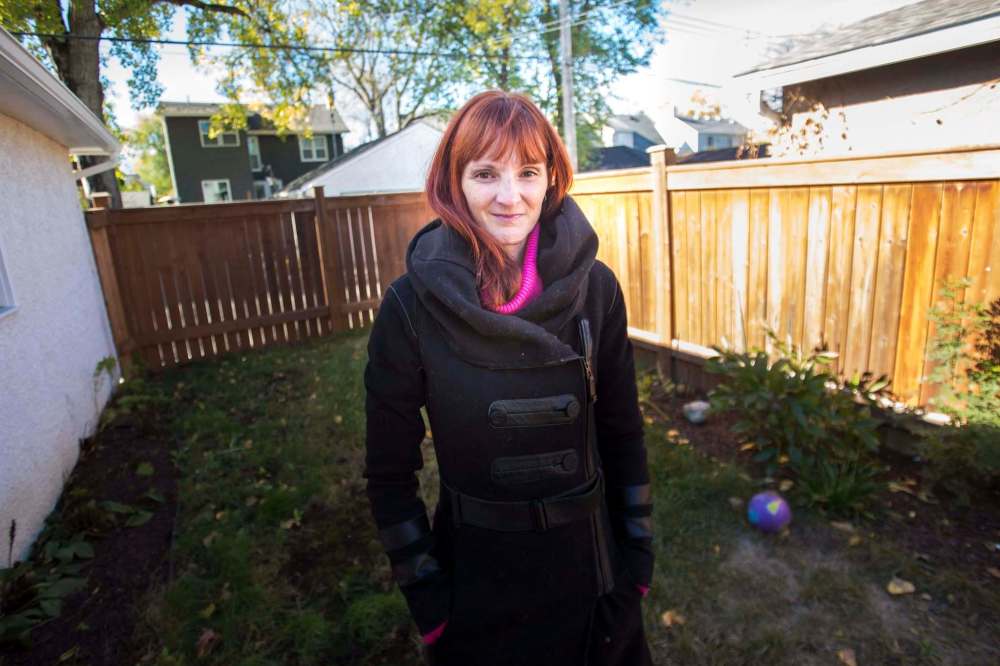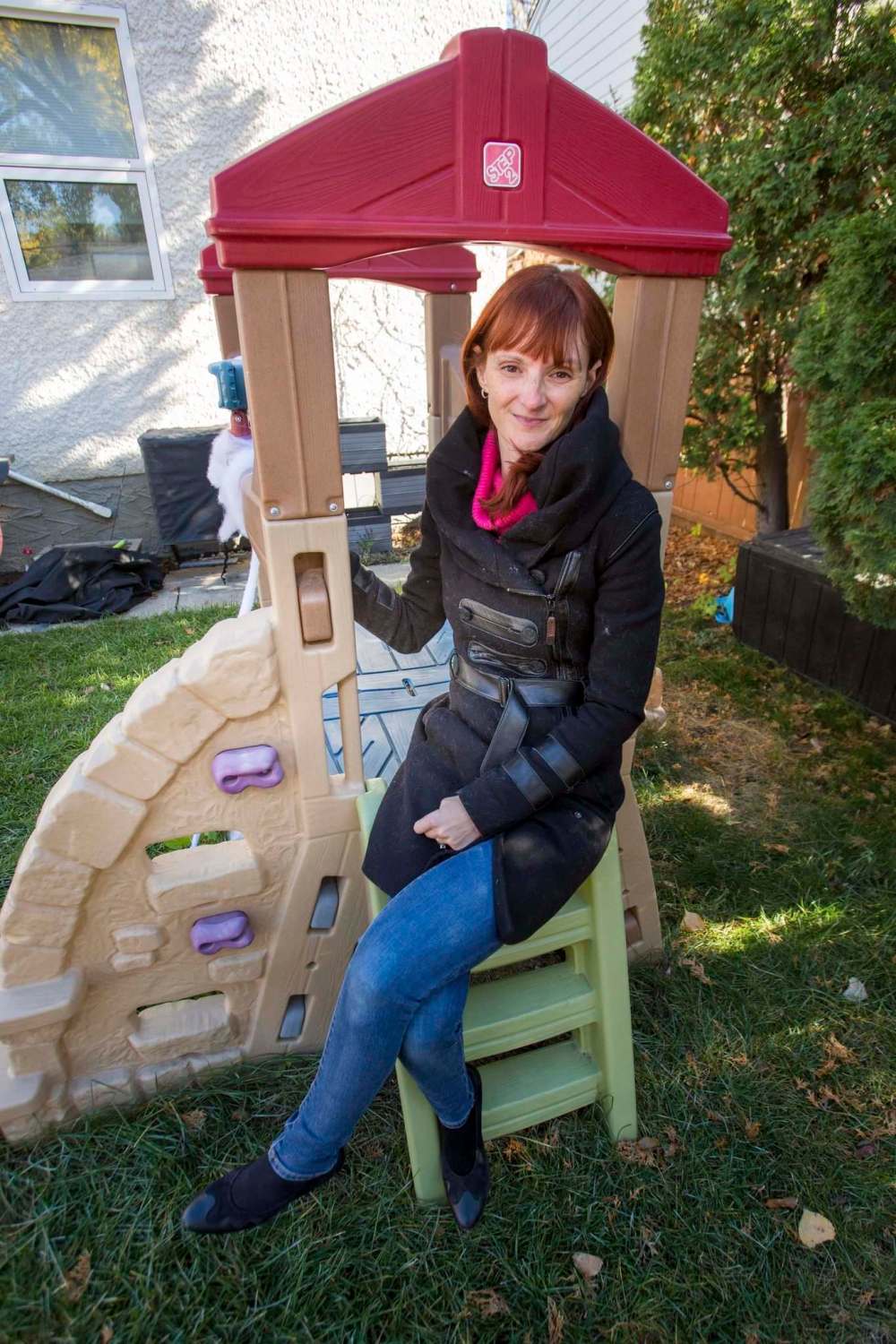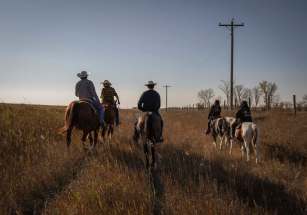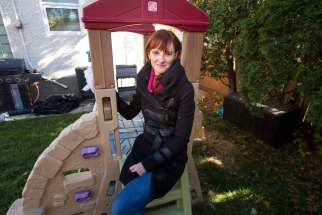Immunizing kids against disinformation U of M scientist makes herself available to answer students' questions about COVID vaccines; 'maybe we can educate the new generation'
Read this article for free:
or
Already have an account? Log in here »
To continue reading, please subscribe:
Monthly Digital Subscription
$1 per week for 24 weeks*
- Enjoy unlimited reading on winnipegfreepress.com
- Read the E-Edition, our digital replica newspaper
- Access News Break, our award-winning app
- Play interactive puzzles
*Billed as $4 plus GST every four weeks. Offer only available to new and qualified returning subscribers. Cancel any time.
Read unlimited articles for free today:
or
Already have an account? Log in here »
Hey there, time traveller!
This article was published 22/10/2021 (1229 days ago), so information in it may no longer be current.
“Can snakes get vaccinated?”
Immunologist Julie Lajoie fielded numerous quirky questions from curious Grade 5 students during a virtual classroom visit at École Riverside School this week.
Lajoie welcomed each query, whether it was about her personal work as a scientific researcher, something informed by a myth about COVID-19 vaccines or, as in this case, an unexpected and unconventional curiosity.
And that’s the only one that stumped her. But after following up with a colleague, she reported back to the elementary class based in Thompson that jabs are not recommended for serpents.

“Some of the kids will actually go in their house and actually talk to their parents about what they learned today, and it’s going to make some discussion,” she said, adding that is exactly her intention: to spread accurate, accessible knowledge about immunizations.
Fed up with all the misinformation about vaccines on her timeline, Lajoie, who has a PhD in immunology and virology, and has devoted the last two decades to studying the immune system, put out a call on social media in the hopes of setting the record straight.
Maybe, she thought, she could get to stubborn adults through their children.
“Some of the kids will actually go in their house and actually talk to their parents about what they learned today, and it’s going to make some discussion.”
– Immunologist Julie Lajoie
“To all teachers in Winnipeg, if you want the kids in your class (to) learn about the immune system and vaccine, I’ll be happy to help. Maybe we can educate the new generation so their vaccine nonsense stop,” wrote Lajoie, whose first language is French, in a tweet posted on Sept. 15.
The research associate at the University of Manitoba volunteered to visit classrooms to present in French or English, either in-person or via Zoom. She was quickly taken up on her offer.

To date, Lajoie has talked to a dozen classes about both what it’s like to work in her field and how vaccines work. She has more visits scheduled during the academic year.
“There is so much (mis)information and people who don’t know what is the truth or what is not true, and believe what they see because they don’t have necessarily the basic understanding of the immune system or vaccine to make the right decision or to understand why that’s not true — so I started to get a little bit frustrated,” she said.
Lajoie’s goal is to equip students with, at the very least, a basic understanding about how the immune system functions, how vaccines work in partnership with it and how they are developed.
Being a mother of two children under the age of five, she has plenty of experience synthesizing and delivering information in an age-appropriate way.
This week, she likened what immune systems do for human bodies to the role security systems play in protecting houses.
“We want students to be able to make their own informed decisions, but we want them to have the tools to be informed and to have the proper resources available to them so the information they’re getting is credible and accurate.”
– Teacher Karlyn Houndle
Viruses, she told elementary schoolers, are not all that different from pirates. And vaccines provide immune systems with the “recette magique” (magic recipe) to defeat such pirates, she added.
“As teachers, we’re not pushing any ideas on them,” said teacher Karlyn Houndle, who hosted Lajoie for a discussion during a Grade 5 science unit on the human body.
“We want students to be able to make their own informed decisions, but we want them to have the tools to be informed and to have the proper resources available to them so the information they’re getting is credible and accurate.”
Not only was Lajoie’s visit important because her students had access to a working expert, but Houndle said they also met a female STEM — science, technology, engineering and mathematics — role model.
The teacher based in Thompson said she can answer only so many of the scientific questions her pupils pose; students primarily want to know when they’ll be able to get immunized and when the pandemic will be over, she added.
Pfizer-BioNTech applied to Health Canada earlier this week to have its COVID-19 vaccine approved for use in children age five to 11. Provincial officials have suggested a rollout could begin as early as late November.
maggie.macintosh@freepress.mb.ca
Twitter: @macintoshmaggie

Maggie Macintosh
Reporter
Maggie Macintosh reports on education for the Winnipeg Free Press. Funding for the Free Press education reporter comes from the Government of Canada through the Local Journalism Initiative.
Our newsroom depends on a growing audience of readers to power our journalism. If you are not a paid reader, please consider becoming a subscriber.
Our newsroom depends on its audience of readers to power our journalism. Thank you for your support.









